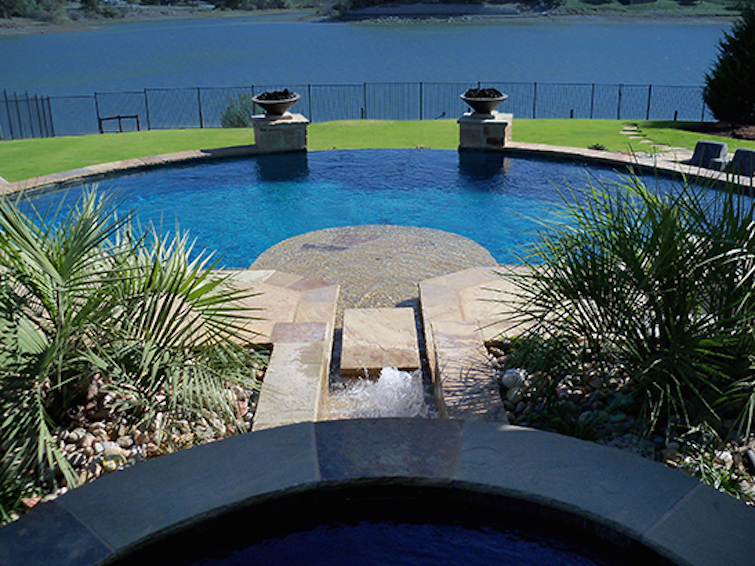Is a Saltwater Pool Really a Saltwater Pool?
August 03, 2015 at 03:28 PM

You hear it often: “We have a saltwater pool that doesn’t use chlorine.” But is a saltwater pool really chlorine-free? The answer is no. Here’s why:
Saltwater pools use a chlorine generator (also called a salt chlorinator or salt system) that creates chlorine from salt. As saltwater travels through the pool’s circulation system, it enters the salt chlorinator, or chlorine generator, and low-voltage current is applied to initiate electrolysis. By introducing electrolysis to the dissolved salt in the water, hypochlorous acid, more commonly known as swimming pool chlorine, is produced. The hypochlorous acid sanitizes the swimming pool water, and eventually reverts back to dissolved salt in the water, and the process repeats as the saltwater passes through the chlorine generator again.
The reality is, a salt pool uses the same chlorine as a traditional pool, it just produces it poolside through a different process without any of the additives used to preserve store-bought, packaged chlorine.
Then Why Have a Saltwater Pool?
The primary difference associated with using a salt chlorinator versus manually adding chlorine that’s most noticeable to the average pool owner, is smell. That “chlorine smell,” along with eye and skin irritations typically associated with chlorine, are actually created by sanitation byproducts called chloramines. Chloramines are essentially bacteria or organic particles (dander, pollen, sweat, etc.) that have been killed by chlorine, but are only partially oxidized. So what you actually smell are the chloramines, which in essence are half-destroyed organic material. When you catch wind of that telltale smell, it means there wasn’t enough chlorine available to completely destroy the organic material in the pool to its basic biological building block (e.g., carbon) to be collected in your filter.
To make this more clear, let's use an analogy: I have a tree in my yard I want to remove. I can kill the tree by cutting it down, which is essentially equivalent to sanitation, when microorganisms in the pool water are killed. While the tree will soon die, after some time, if left to sit there, like any organic material, it will begin to rot and decay, and likely smell. To quickly "oxidize" the tree, I chop it into smaller pieces, and put those pieces in a fireplace - burning it, and reducing it to ash. The sanitation/oxidation process has reduced a tree, which weighed several tons, into a few pounds of ash. This is essentially what we do with chlorine and microorganisms in the pool, and this is also why the gunk in your pool filter typically looks like ash.
The reason a “salt” pool feels, smells, and generally provides a more pleasant experience, is because, when working properly, the saltwater system is generating enough chlorine to completely finish the process and fully oxidize any organic material that enters the pool automatically every day, with minimal pool owner intervention.
The main benefit of using a salt system for your pool are that pool owners don’t have to buy, lug, or measure chlorine for pool use, or worry about spilling and storing it safely around kids and pets. Other benefits include long-term cost reduction, and consistent sanitization delivery.
Who Knew?
Now You Know!
Next time, someone says his or her pool is a “saltwater pool,” you’ll have the facts and peace of mind knowing that you are swimming in clean, safe water.